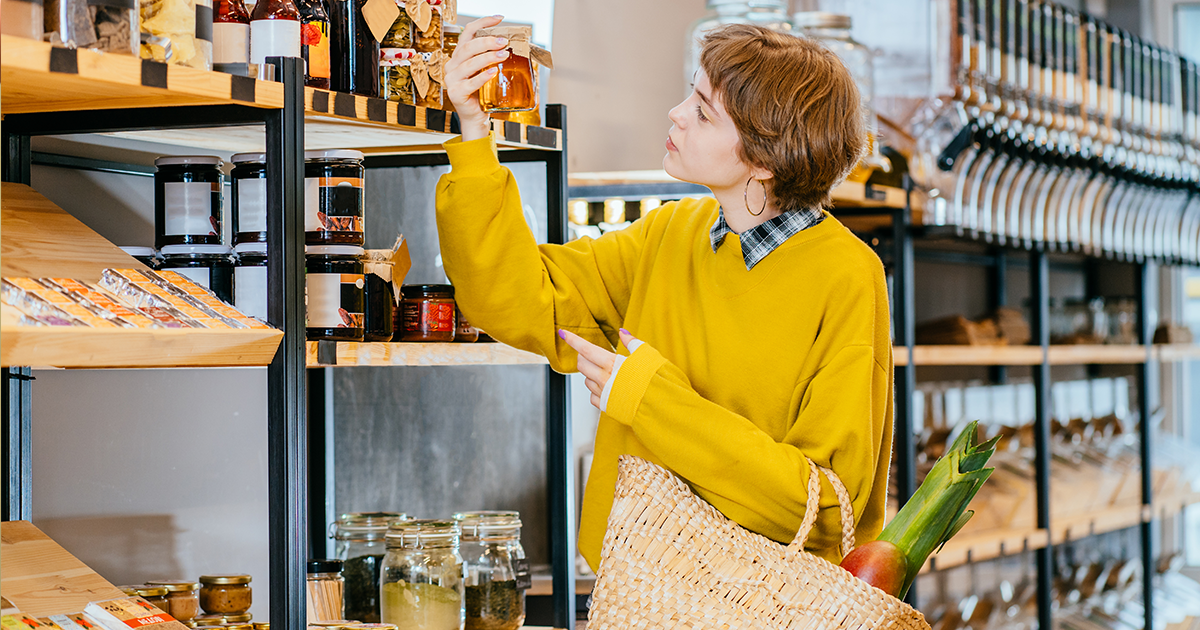Authenticity and attributes are critical to growth.
When Jake Deleon launched Fila Manila in 2020, the CPG space—and the entire world—was in flux. His ready-to-drink beverage brand went from having its best quarter ever to rapidly losing business and eventually shuttering. That’s when Deleon learned that in the U.S., Filipinos were a significant portion of frontline workers and the second-largest Asian American group. That led him to wonder why that population wasn’t reflected on any store shelves in grocery stores.
“This is despite the fact that what we know now—with SPINS—Filipino is the fastest growing global flavor out there,” Deleon says. “You see all the bubbling in pop culture and social media about Filipino being the next wave of cuisine hitting the US, and it just kind of seemed natural to think, ‘It’s time for someone to start the first Filipino American food platform.”
He took his $1,200 stimulus check to build the prototypes of Fila Manila’s sauces and jam, sold the product in concept to his first retailers, and then launched in November 2020.
“I think I was just compelled by this idea to create something good out of something terrible.”
SPINS chatted with Deleon to understand how an emerging brand managed to grow during a chaotic time while bringing Filipino food to a wide audience.
Q&A
SPINS: Part of your audience is familiar with these flavors and glad to finally see your products on shelves. Then you have a segment that is not at all familiar with Filipino cuisine. When you launched, how did you decide whether to focus on education or awareness?
Deleon: This was in early 2020 before the craze of global flavors—no one really knew this next wave of global flavors was about to hit natural, specialty, and even conventional. Truthfully, I thought [our customers] would be like me—first- or second-generation Asian Americans or maybe Filipino immigrants.
We launched on Amazon in the spring of 2021 and almost immediately became a number 1 seller. My next question was “Who on earth is buying this random Fila Manila on Amazon more than these other brands?” I just emailed 50 customers and asked, “Who are you and how did you find out about the company?” I was expecting them to say, “I’m a first and second-generation Filipino in California and I knew all this stuff growing up.” Actually, 9 out of 10 of them came back with a story. “I’m white, I’m Hispanic. I’m from Nevada. I’m from Washington state.” Or “I used to go to school with someone Filipino and they made the most amazing food for me. So, when they saw your product on Amazon, they sent me the link.”
“Being accessible to everyone doesn’t only mean the lowest price possible but also means meeting a lot of the key attributes in terms of what people are looking for in their diets.”
SPINS: Your sauces are all vegan, dairy-free, and gluten-free. Did you find those attributes helped you get seen as an option for shoppers who are searching based on dietary needs rather than on cuisine?
Deleon: Filipino food is kind of new to most Americans, so no one was going to care if you were organic or gluten-free. Let’s put it out there at the lowest price and call it a day. But a part of me was looking at the opportunity and wanting Filipino cuisine and flavors to be accessible to everyone. Being accessible to everyone doesn’t only mean the lowest price possible but also means meeting a lot of the key attributes in terms of what people are looking for in their diets.
My earliest research was going to [a local store] and I would ask the buyer what their top 10 Asian sauces were. Then I would just pick up each bottle and look for the common attributes, which were basically like gluten-free, vegan, and others like that.
SPINS: What were your initial conversations with retailers like and what are they like now?
Deleon: The general advice when talking to retailers is that you want to help them solve a problem. For the most part, category managers and buyers—especially for the larger chains—there’s only so far a story can go. Our vision and our approach to them is showing the problem. The problem is that you have a global flavor set, an Asian set, and you’re basically ignoring one of the largest swaths of the population here. And then, by the way, we happen to be the only Filipino American brand in town and we make it all domestically—so no supply chain issues. Plus, we’re clean label and meet the Whole Foods requirement. Once retailers understand that data, they realize we’re right and they don’t have anything [like us] out there right now.
SPINS: Despite being first to market, you have to stay competitive and keep growing as the audience grows. How do you achieve that?
Deleon: Innovation is key for Fila Manilla. We’re very clear: We’re not Asian-inspired. We’re not making Pad Thai sauces. We’re not making Sichuan chili crisps. We’re staying very focused on our product strategy, which is basically sticking with core Filipino cuisine concepts. When we talk about differentiation with the retailers, we show that this is Filipino food and this is how much it’s growing. “The New York Times and Forbes said ube is one of the top ingredients of 2023 and [this competing retailer] is beating you.” We’re the Filipino brand meeting all these attributes that retailers are looking for.
“I think the idea of authenticity is super important. This is the idea of authenticity that links us all together and that we’re producing products from the heart.”
SPINS: Fila Manila won a NEXTY award last year and has had quite a bit of success. You’re representing Filipino food in the market, and you’re the one who leads this business. And now there is Filipino food on the tables of people who had never tried it before—and for people who haven’t enjoyed it in a very long time. What do you hope people take away from your story?
Deleon: We want to provide Filipino flavors for everyone, right? Imagine trying to bring Filipino food for someone who’s never experienced it before in some states. And that’s exactly what we’re doing. But the way we do it, it’s authentic and comes from the heart. The recipes are my parents’ recipes. I, myself, am from the Philippines—you can’t get more authentic than that. Even just the idea of introducing the cuisine into more minds and mouths in the U.S. has such a great blessing and honor.
But you know, I think the idea of authenticity is super important. I started a new industry group called Founders Heritage. It’s a community of founders within global flavors who bring products that are kind of directly linked to their own heritage. We know the same suppliers, we know the same retailers, we know the same investors—we support each other. This is the idea of authenticity that links us all together and that we’re producing products from the heart.
There’s something magical and there’s something special when these products come from growing up as immigrants and just wanting to bring this food that we have enjoyed as children to the rest of the country in a meaningful way.
Want to learn more about Product Intelligence?
Speak with an Expert







